Amber McBride
ROLL CALL: NEW TAROT NAMES FOR BLACK GIRLS
In “ROLL CALL: NEW TAROT NAMES FOR BLACK GIRLS,” Amber McBride treats us to a playful litany of language that twists and leaps and never stumbles. Flavored with old-time Christianity, old-time hoodoo, and a modern alchemy all her own, it talks back to prejudice, reclaims the words meant to take people down, and forges new identities that shimmer with strength and strangeness.
We’re pleased to offer Amber McBride’s poem, and invite you to read Pádraig’s weekly Poetry Unbound Substack, read the Poetry Unbound book, or listen back to all our episodes.

Image by Annisa Hale/ Film processed by Moody's Film Lab, © All Rights Reserved.
Guest

Amber McBride is an English professor at the University of Virginia. She is the author of several books, including the forthcoming poetry collection, Thick with Trouble (Penguin Books/Penguin Random House, 2024). Her debut young adult novel, Me (Moth) (Square Fish/Macmillan Children’s Publishing Group, 2023) was a finalist for the National Book Award, and it also won the 2022 Coretta Scott King - John Steptoe Award for New Talent. McBride low-key practices hoodoo and high-key devours books (100 or so a year keep her well fed). She is a bit of a book dragon; she collects more than she reads. In her spare time, she enjoys pretending it is Halloween every day, organizing her crystals, watching K-dramas, and accidentally scrolling through TikTok for 3 hours at a time. She believes in ghosts, and she believes in you.
Transcript
Transcription by Alletta Cooper
Pádraig Ó Tuama: My name is Pádraig Ó Tuama, and for a number of years I’ve had tarot cards. I don’t use them too often. Just every now and then. Dealing with the left hand, I was told. And I read up a little bit about them, and I deal them out, and allow myself just to free associate with them. And partly I am curious to know what the historical interpretation is, but mostly I’m interested to know what my association is. I bring all kinds of parts of myself, my own culture, and my interest in language in whatever ways the images suggest themselves to me is the conversation that ultimately I’m having with myself in the face of these cards. It took me a long time to get over the feeling that I was doing it wrong because mostly, I think, that its invitation is to do it in a way that is a conversation back.
[music: “Praise the Rain” by Gautam Srikishan]
“Roll Call: New Tarot Names For Black Girls” by Amber McBride
“Call us something lovely
mischief changing robes.
“Call us hardened honey’s brownness
on the tip of the tasting spoon.
“Brown hands cradling inherited softness
or head cook, in a country church, hymning.
“It’s cold, darling. Come inside, make a cream-colored psalm of me.
Call me gospel—I don’t mind harboring millions of maybes at once.
“Call us steak knife to clean meat from between teeth
or steak knife to skin prey. Pray we don’t snare you.
“Cornbread crafted from spoiled milk or nickel-nicked knuckles.
Fault lines haunting thighs. Crimson eggs nesting, in wait, between breasts.
“Been called liars & midnight’s evil twins. Deceits blossom like fungi—
Black girl will hatch a long red snake-thing—a bloody cord that strangles on
command.
Black girl will Sin with anything with half a heartbeat—even a dis-ease.
“That’s fine, honey, call us Pestilence’s hands
slowly—edging Atlas—
the reason he begs
& drops it all.
“Call us end of days or pretty despite the Blackness.
Come into my soft coffin, my mouth buzzing flies.
“Touch my heat-strum, one more time,
I don’t mind, I offer the death card to everyone.
“Been called trouble
that good
good kind.”
[music: “What Did You Not Hear” by Gautam Srikishan]
What is happening in this poem? It’s a poem called “Roll Call: New Tarot Names for Black Girls.” And the roll call brings images of a classroom to mind where someone’s calling out the names of people and they’re indicating whether someone’s in attendance or not. And then “New Tarot Names for Black Girls” is the voice of a Black poet and “New Tarot Names” is looking at an old practice, tarot, being given new names. So something old is being reinvented and something’s been called up to see if it’s in attendance.
The book from which this poem comes is called Thick with Trouble. And you see at the end of the poem — or you hear at the end of the poem — a reference to the title of the book “Been called trouble / that good / good kind.” So Thick With Trouble, and this is the first poem of the book. Partly this poem is introducing the body of work and it’s saying, in a certain sense, that this is so-called trouble that’s talking for itself.
Amber McBride is a professor of English at the University of Virginia, and she has on her website a few bios. And my favorite was the one called the “Fun Bio” that makes reference to her low-key practicing Hoodoo and high-key devouring books. And then the last part of that Fun Bio says, “she believes in ghosts and she believes in you.” And amusing and lighthearted and entertaining as this fun bio is, it’s also filled with information that really opens up the poem, I think.
This poem is located where time is coalescing, old-time, and change. Old-time Hoodoo, old-time Christianity, and absolutely particularly within it, too, is racism and a voice that’s speaking back to that. The clash of language and the amplification of language speaking back; language that has power at its heart; language with divination; language that demands from the tongue and enacts as it announces.
[music: “Creatures of Myth” by Gautam Srikishan]
One of the things that this poem is, is a syntactical delight, to use a kind of a poetic term. It’s so pleasurable to pronounce the words out loud. Look at it on the On Being website and just read it out because it asks so much of your mouth and “mischief changing robes,” “hardened honey’s brownness,” “steak knife to clean meat from between teeth,” and then “cornbread crafted from spoiled milk or nickel-nicked knuckles.” It asks so much of you, and in that what you’re brought into is the magic of language, the glamor of language. Glamor and grammar are etymologically related. And so what we know from the old history of language is that for a long time, people have understood to say something is to try to draw it into being. And that’s the thing that strikes me so much amidst the many, many images that are brought to the mind in this poem is what it is that the strength, the brilliance, the playfulness, and the sensuality of the language is doing.
There’s a lot about the body, you know, the hardened honey “on the tip of the tasting spoon,” and the meat between teeth, and the “knife to skin.” “It’s cold, darling. Come inside, make a cream-colored psalm of me.” “Fault lines haunting thighs. Crimson eggs nesting, in wait, between breasts.”
The poem is so filled with corrective language. In the midst of “call us, call us, call us” there’s reference to the kind of thing that Black girls have been called. “Been called liars & midnight’s evil twins. Deceits blossom like fungi—/ Black girl will hatch a long red snake thing—” “Black girl [would] Sin with anything with half a heartbeat.” And, in response to that, you hear this voice coming back, a voice that isn’t just going to the lowest common denominator of saying, “No, no, no, no, no.” In a certain sense, the voice is saying, “You think that’s bad? Let me tell you what it’s like.” “That’s fine, honey, call us Pestilence’s hands / slowly—edging Atlas—/ the reason he begs / & drops it all.” So in the face of insults and in response to language about being overly sexual, the speaker of the poem, here, says that she’ll edge Atlas the Greek God who holds up the sky. This is a voice that is unafraid. This is a voice that is exposing the insulting voice and saying, “You need to face your own fear.” In a certain sense, there’s a priestly voice coming across here, a sensual priestly voice, a voice that knows how to use language to say, “If you think this is something to be afraid of, there’s a lot more to be afraid of. Look.”
[music: “Creatures of Myth” by Gautam Srikishan]
The two lines that begin: “I don’t mind,” they’re toward the start of the poem, and toward the end of the poem. “I don’t mind harboring millions of maybes at once,” and “I don’t mind, I offer the death card to everyone.” I kind of feel like this is a response to religion. “Millions of maybes at once” is a way of responding to something that might have put forward certitude to say, “Here’s the way the world is or should be, or here’s how you should act, or here is the absolute theory of everything.” The speaker in this poem is saying, “I don’t mind holding millions of maybes at once.” Delicious alliteration in the “millions of maybes.” And then later on, “I don’t mind, I offer the death card to everyone.” And the speaking voice in this poem, Amber McBride, is using the voice to say, “We can hold so many maybes and the world is filled with so many maybes, but one thing about which there isn’t a maybe is death.”
Alongside the question of death as the end as in you’re going to die, there is the death of an experience. There’s the death of who it is you thought you would be. Death, leading to birth, during a life cycle, is something that’s at the heart of so much of change. Something that’s at the heart of growing up is that which you thought was going to last forever doesn’t, and something new comes in its aftermath. It can feel like death in advance. And the death card in tarot can be a way of thinking about your own death, but it can also be a way of thinking of what is it you’re willing to let go of? What is it you’re willing to let die in order for something else to emerge?
[music: “At Dusk” by Gautam Srikishan]
So much of the delight of this poem is in the language being used and the strong images being used that are just absolutely visual. It’s a little bit like being in a dream and seeing all this sequence of images coming at you. But there’s great technology of form and language being used, as well. Alliteration in the “hardened honey” and “country church” and prey/pray, P-R-E-Y/P-R-A-Y, “cornbread crafted,” “nickel-nicked knuckles,” and then “between breasts,” “half a heartbeat.” Even the “soft coffin,” that repetition of F at the end of soft and in the middle of coffin, that soft bringing into something that’s a complicated image at the end of the poem. “And good / good kind.” The formal repetition there. There’s great rhyme as well. “Clean meat from between teeth.”
These poetic devices sound like music and they also sound like some kind of incantation. There’s a Hoodoo litany that’s taking names and isn’t afraid of death or change and is filled with sensuality and old country church hymns and uncertainty and isn’t afraid of the link between religion and death. The voice, here, that is naming itself and naming others, not just an individual, but “New Tarot Names for Black Girls” and the plural is in the title. This voice is sharing itself and knows that power isn’t just in knowing the name, but in offering the name and in naming out, and by naming something is brought into being.
[music: “What Did You Not Hear” by Gautam Srikishan]
“Roll Call: New Tarot Names For Black Girls” by Amber McBride
“Call us something lovely
mischief changing robes.
“Call us hardened honey’s brownness
on the tip of the tasting spoon.
“Brown hands cradling inherited softness
or head cook, in a country church, hymning.
“It’s cold, darling. Come inside, make a cream-colored psalm of me.
Call me gospel—I don’t mind harboring millions of maybes at once.
“Call us steak knife to clean meat from between teeth
or steak knife to skin prey. Pray we don’t snare you.
“Cornbread crafted from spoiled milk or nickel-nicked knuckles.
Fault lines haunting thighs. Crimson eggs nesting, in wait, between breasts.
“Been called liars & midnight’s evil twins. Deceits blossom like fungi—
Black girl will hatch a long red snake-thing—a bloody cord that strangles on
command.
Black girl will Sin with anything with half a heartbeat—even a dis-ease.
“That’s fine, honey, call us Pestilence’s hands
slowly—edging Atlas—
the reason he begs
& drops it all.
“Call us end of days or pretty despite the Blackness.
Come into my soft coffin, my mouth buzzing flies.
“Touch my heat-strum, one more time,
I don’t mind, I offer the death card to everyone.
“Been called trouble
that good
good kind.”
[music: “Praise the Rain” by Gautam Srikishan]
Chris Heagle: “Roll Call: New Tarot Names For Black Girls” comes from Amber McBride’s book Thick with Trouble. Thank you to Penguin who gave us permission to use Amber’s poem. Read it on our website at onbeing.org.
[music: “Praise the Rain” by Gautam Srikishan]
Poetry Unbound is: Gautam Srikishan, Eddie Gonzalez, Lilian Vo, Lucas Johnson, Amy Chatelaine, Kayla Edwards, Annisa Hale, and me, Chris Heagle.
Our music is composed and provided by Gautam Srikishan and Blue Dot Sessions.
This podcast is produced by On Being Studios, which is located on Dakota land. Open your world to poetry with us by subscribing to our Substack newsletter. You may also enjoy Pádraig’s book, Poetry Unbound: Fifty Poems to Open Your World. For links and to find out more visit poetryunbound.org.
Books & Music
Recommended Reading
The On Being Project is an affiliate partner of Bookshop.org and Amazon.com. Any earnings we receive through these affiliate partnerships go into directly supporting The On Being Project.






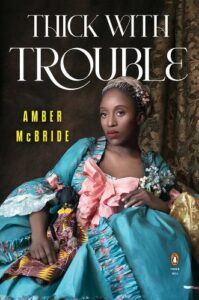
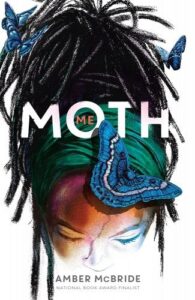
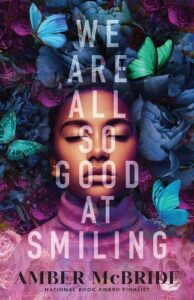
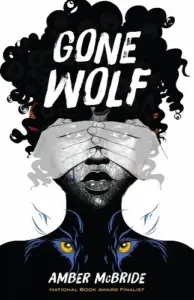

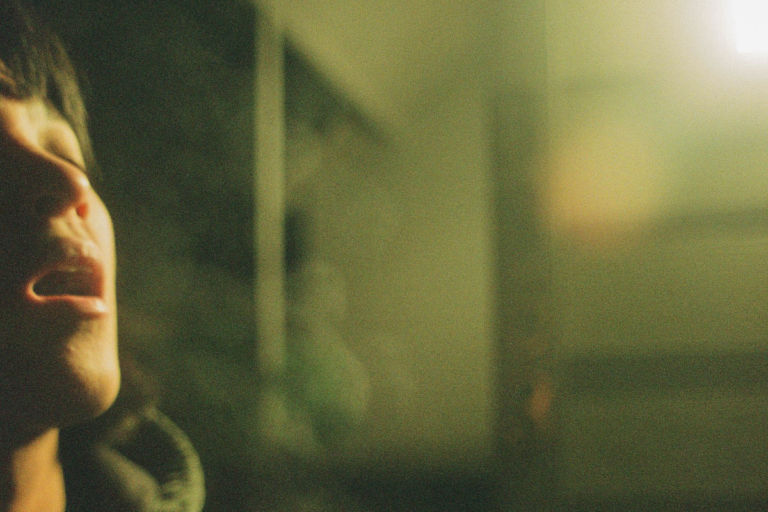
Reflections